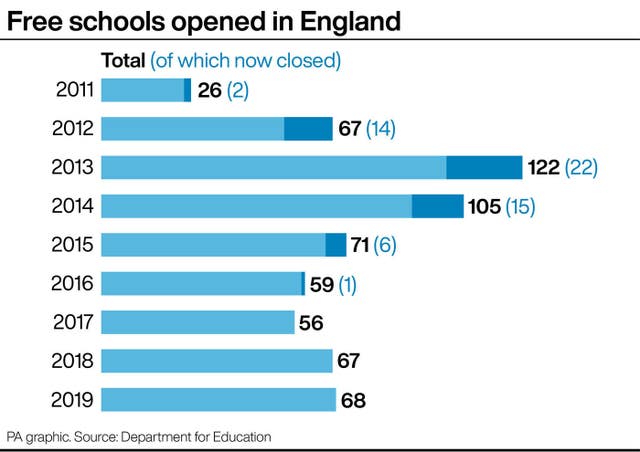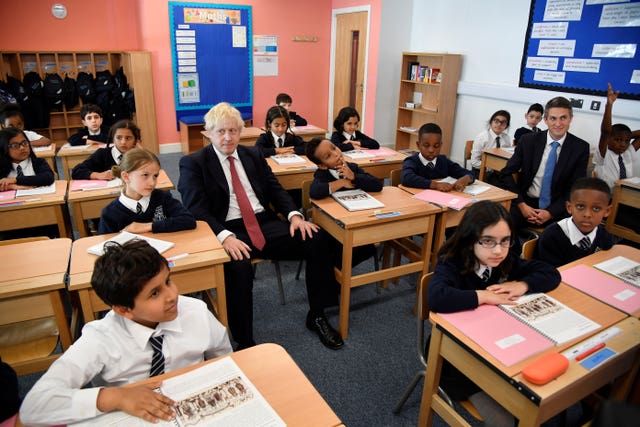Johnson goes back to school as he pledges thousands of new free school places
Up to 30 new free schools could be established as part of the latest round of applications.

Prime Minister Boris Johnson showed off as a swot by eagerly putting his hand up twice to answer questions in a primary school history class.
Mr Johnson took his seat among Year Four pupils at Pimlico Primary School in south-west London as he pledged thousands of new free school places as part of an education drive.
Up to 30 new free schools could be established as part of the latest round of applications.
The classics graduate warned children against getting drunk at university and told them he had “frittered too much time” while at Oxford.

Mr Johnson said: “My strong advice is don’t waste your time at university.
“Don’t get drunk … I frittered too much time at university I’m afraid to say.”
But the former president of the Oxford Union added: “I did nothing except Latin and Greek for about 20 years and now I’m running the country. It’s a perfect education.”
Free schools – new state schools that are not under local council control – are a key part of Conservative education policy.
They are typically set up by groups such as teachers, parents, charities, businesses or trusts, are directly funded by Government and have freedom over areas such as the curriculum and staff pay.
Since the programme began in 2011, it has faced controversy, with supporters arguing that free schools give parents more choice and help drive up standards, and critics raising concerns they are more likely to be in middle-class areas, with poorer youngsters missing out.
Mr Johnson later raised his hand to answer a question about the Bayeux Tapestry, and then again when the teacher asked who commissioned the piece.

He said: “It’s actually hotly contested. The French say it was made in Bayeux but I think we claim that it’s a masterpiece of Anglo-Saxon needlework.
“But Macron says he’s going to lend it to us, President Emmanuel Macron.”
Mr Johnson said: “Free schools help to ensure children are getting the best education possible – offering exceptional teaching, encouraging strong discipline and providing families with more choices.
“I want to see even more of these excellent schools open, particularly in areas most in need of more good and outstanding school places.”
Last month, the Local Government Association warned of a “looming crisis” in school places and said 15 councils will face a secondary school shortfall by 2020/21 unless more places are created.
The National Education Union (NEU) criticised the Government for pursuing a “reckless approach” by “throwing taxpayers’ money at its pet project”, saying the free schools programme is “in crisis”.
According to the Department for Education (DfE), more than 500 free schools have opened since 2010, creating more than 133,000 school places, with more than 220 set to open in the coming years.
Of those inspected by Ofsted, 84% have been rated good or outstanding, with 30% rated outstanding, the DfE added.
But Dr Mary Bousted, joint general secretary of the NEU, said: “Once again, this Government is throwing taxpayers’ money at its pet project free schools, instead of taking a long, hard look at where investment is most needed, after a decade in which schools across England have been starved of cash.
“The Government’s academy and free schools programme is in crisis.
“Once the 23 free schools that have had to close due to serious failings are factored in, free schools are less likely to be rated good or outstanding by Ofsted than other state-funded schools.
“Furthermore, free schools are far more likely to be judged requires improvement or inadequate than other state schools.”
The Government has pledged to invest more than £14 billion in primary and secondary education between now and 2022-23.





